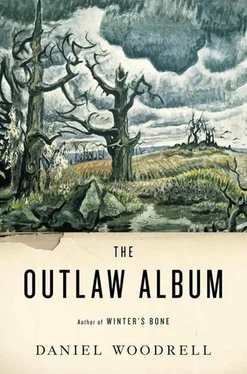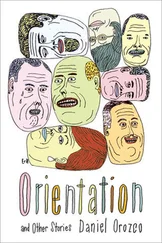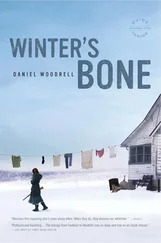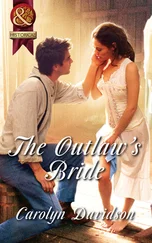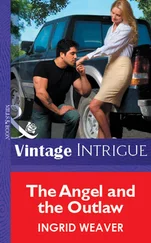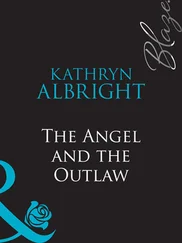For weeks to come Pelham would wonder how that knife came to be on the nightstand. How did a knife that shouldn’t have been there happen to be there on this particular night? He tried to recall the preceding days backwards from the killing moment, to unravel the hours and find that knife. He didn’t eat before sleep anymore, acid reflux, so it wasn’t there to carve apples or slice cheese. They’d had guests a couple of nights ago, though, a few friends in for an evening of bourbon and smoked turkey, and he’d gone to bed pretty well lit—had he craved a snack to soak up the sour mash, fuck the reflux, and fallen asleep before fetching any? There was no sign of food on the empty plate. They’d gone after trout on the Spring River the day before that, fog in the bottoms and rainbows filling their creels—maybe he’d meant to fix something rent in the gear? Cut a tangle loose, trim a fly, fix a net, or perform some other mysterious household task he simply could not recall.
The house became crowded with cops. Pelham lived amidst woods and pastures, but the city limits had recently expanded to make him a West Table resident, so it was town cops in uniform and out clomping about, huddling to look down at the kid, studying the mess across the floor. Pelham sat on the bed with Jill beside him. He’d shook and shuddered for a while, waiting on the cops, trying not to look at the wounds, the open eyes and footprints, but having a surprise feeling sneak up on him, a creepy congratulatory glee, an animal gloat—Hey, I was attacked by a nameless intruder, fight to the finish, my foe now lays slain, a righteous kill. Sometimes a man will dream about a moment like this, an opportunity for sanctified violence, a time to open the cage and allow the sleeping thing inside out to eat its fill. A cop in a plaid shirt and Cardinals cap said, “Where’d his weapon fall to?”
“It was dark.”
“What’d he have?”
“Look under the bed, maybe.”
“You know, he shit on your leather chair downstairs.”
The leather recliner was Pelham’s inheritance, his father’s most cherished possession, and the shit was loose spatter and spread over the seat, one armrest. Two days later Pelham would give up trying to clean the leather, clean it enough to forget the spatter, and dragged the chair to the curb for the trash haulers to collect. Before nightfall he’d watched from the window as a man and two children pulled to the curb, checked the leather chair over, then excitedly jammed it into the trunk of their car and hurried away, grinning with the trunk lid bouncing. That was the first time Pelham caught himself speaking aloud to empty rooms, leaning against the window, watching his father’s chair disappear. “And fuck you for making me kill you.”
The cop said, “We found it outside, around the corner of the house, beside that big shrub. An ol’ single-action pistol. His clothes were there, piled nice, really, and the pistol was underneath. A pocketknife, too. His wallet’s got military ID in it, says his name is Randall Davies—know him?”
“I went to school with a guy named that.”
“Well, this one was a junior.”
The first time Pelham heard himself threatened was early that evening, in a convenience store when he and Jill went to buy more cleaning supplies. The bedroom floor was hardwood and the biggest puddle left an outline of blood that had settled into the grain like a birthmark and wouldn’t come off easily. There was only one other customer, a man in a green shirt with his name sewn above the heart pocket, and he was whispering with the clerk. Pelham and Jill came to stand behind him, holding scouring powder and Murphy soap and scrub pads. They heard the words “killed, stabbed like a hog in autumn” and knew they were under discussion. They remained silent, didn’t say a word, waited for the man to leave. As he left, the man spoke more loudly, “I been friends with that boy all his life, and if the law don’t do right to the son of a bitch, I know who will.” Jill started crying again on the way home, and when he pulled into the driveway she said, “Maybe that last stab could’ve been skipped, hon. The neck one.”
He was called to the police station the next morning. The sky was rumbling, stuffed with dark clouds, but only a thin sheen fell, raising oil slicks on the streets, shining the grass. The cops were named Olmstead and Johnson and led him to a private office. The room was painted a neutral sort of white, like the room could hold no opinions about anything one way or the other, and there was a tape recorder on the table. Olmstead said, “You’re certain sure you never did know him?”
“I could’ve seen him somewhere, but I don’t recall it.”
“His daddy knows who you are.”
“From school days.”
“And Jill, now, it couldn’t be she’d got acquainted with such a handsome young fella somewhere, could it?”
“He was kinda young, man, but thanks a shitload for putting that thought in my head.”
“So she might’ve?”
“Fuck you.”
Pelham had killed before. He’d been on Okinawa waiting to turn eighteen, a lance corporal, and the day after his birthday made him eligible for combat he was herded into a fat airplane and taken to Saigon. He didn’t know what was going on when he landed in Vietnam and didn’t when he left, either. Jarheads hanging around a gedunk, waiting for assignment, and a corporal told them they were lucky men; they were going to someplace in the south where there wasn’t much action to worry about. Everybody relaxed, tried to eat noodle soup with odd spoons they couldn’t make work, and wrote postcards home expressing relief or disappointment. The radio started crackling about noon, and more and more senior men gathered to listen as the next hour passed. Suddenly the corporal said they weren’t going where he’d thought, get on your feet. First chopper ride, a little airsick, flying north to a place under attack, a place with a name Pelham never did hear straight. They took fire coming in and two marines were hit and spread on the bulkhead. Pelham had blood on his face before he’d even landed at this place with a name he didn’t know. A harried captain acknowledged the fresh arrivals with an irritated wave, and a sergeant sent the Fucking New Guys downhill to the foxholes nearest the wire. Rainwater deepened in the holes; drizzle never stopped. The hills were steep and richly green; fog was alive and lowering until dark. There was a sniper everybody kept yelling about. Pelham did not know where he’d been sent or who he was with. The only name he’d caught was of a marine who’d died on the way in, Lazzaro from Texas. He did not have a clear idea about the shape or size of the base. He was mightily afraid he might shoot the wrong target in the dark, but he didn’t want to be hesitant. He didn’t know which way to run if it came to that or whose name to scream seeking help. Enemy troops breached the wire twice that night. Mortar rounds made the mud fly. Pelham shot and shot and shot every shadow that came near or seemed like it might. When he next understood where he was, he lay in a white bed on a hospital ship with a humming in his head that didn’t fade until he was home again. Sometime during his recovery he received the Purple Heart as a parting gift.
He’d served in Vietnam less than twenty-four hours and felt uncomfortable even mentioning that he’d been there, since other veterans always asked, Remember Mama something-or-other’s joint on the road to Marble Mountain? Di di mau? Beans-and-motherfuckers? The way the gals in black pajamas’d yank one leg up high and pee out the side? No no no no. You’re a bullshitter, then, ’cause if you were there, Jody, you’d know them things. A year after his return Pelham ceased to mention Vietnam to new acquaintances, dropped it from the biography of himself he’d give if asked. Only those who knew him before he went were certain that he’d gone. Jill was a second wife, fifteen years his junior, a lovely, patient blonde, and remembered Vietnam as a tiresome old television show that’d finally been cancelled about the time she left third grade. She touched Pelham’s scars but didn’t ask for details.
Читать дальше
